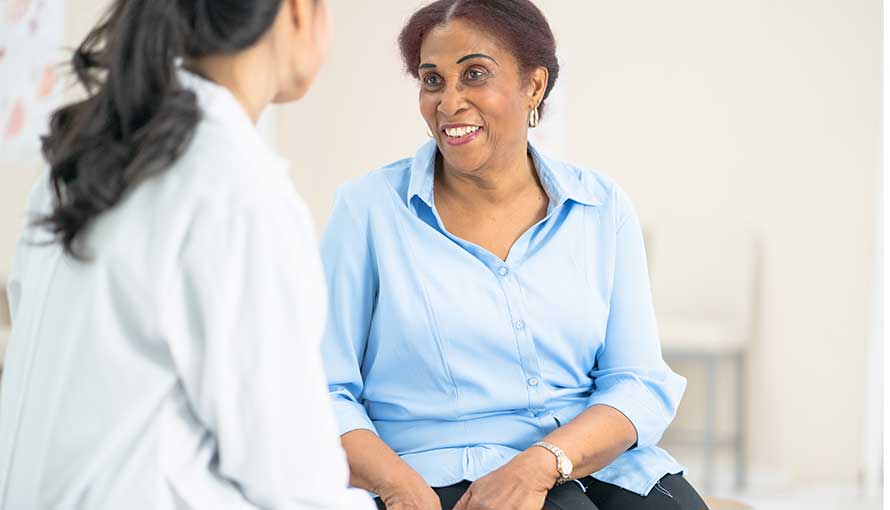When to See a Gynecologic Oncologist

Gynecologic oncologists specialize in treating cancers affecting the female reproductive system, which includes the cervix, ovaries, uterus, vagina and vulva. As such, gynecologic oncologists often treat:
- Cervical cancer
- Endometrial (uterine) cancer (including uterine sarcomas)
- Female pelvic tumors
- Ovarian cancer (including germ cell tumors)
- Vaginal cancer
- Vulvar cancer
While it’s often recommended that women visit their gynecologist on a regular basis for check-ups, there’s generally no need to see a gynecologic oncologist unless you’re either experiencing symptoms of the cancers listed above or at heightened risk for developing these malignancies.
Symptoms to watch out for
It’s important for all women to keep an eye out for the following symptoms, which are associated with one or more gynecologic cancers:
- Unexplained vaginal bleeding, including bleeding that occurs in between menstrual periods or after sexual intercourse, a pelvic examination or menopause
- Menstrual cycle changes
- Abnormal vaginal discharge, including discharge that is thick, watery, odorous or tinged with blood
- A palpable mass or lump in the vagina
- Changes in the skin of the vulva, including open sores, wart-like bumps or growths and variations in skin pigment or texture
- Pelvic pain or pressure
- Pain while urinating or during sexual intercourse
- An itching or burning sensation in the vulva
- Lower back pain
- Frequent urination
- Difficulty urinating or defecating
- Persistent bloating or swelling in the stomach area
- Persistent swelling in the legs
- Unexplained weight loss
- Feeling full quickly after eating
- Persistent indigestion
- Nausea and vomiting
- Anemia
If you’re experiencing any of these symptoms, you’ll want to make an appointment with your gynecologist, who can perform an examination and refer you to a gynecologic oncologist if necessary. Or, if you would prefer, you can also make an appointment directly with a gynecologic oncologist at Moffitt Cancer Center.
What to expect during your appointment
When you meet with a gynecologic oncologist, he or she will likely begin by asking about the reason for your visit. If you’re currently experiencing any of the symptoms mentioned above, you’ll need to provide details about when they started and whether they’ve improved or worsened since that time. Or, if you’re not currently experiencing any symptoms but are at high risk for cancers of the female reproductive system, you’ll need to explain that. After discussing your medical history and current condition, the gynecologic oncologist will likely perform a pelvic examination and order any necessary diagnostic tests.
To make the best use of your appointment, be sure to bring along everything that your oncologist requests. This may include:
- Copies of your medical records and imaging results
- A list of the physicians you’re currently seeing
- A list of any medications and supplements that you’re currently taking
- Information about your medical history
- Any questions you may have
Consult with a gynecologic oncologist at Moffitt
If you’d like to schedule an appointment with one of the skilled gynecologic oncologists at Moffitt Cancer Center, you can do so by calling us at 1-888-663-3488 or filling out our new patient registration form online. We’re proud to be the only National Cancer Institute-designated Comprehensive Cancer Center based in Florida, a title that speaks to our commitment to developing effective approaches to cancer treatment. We understand how overwhelming it can be to face a cancer diagnosis, so we provide every new patient with rapid access to a cancer expert within a day, which is faster than any other cancer hospital throughout the country. We look forward to meeting you and providing you with the first-rate treatment that we’ve come to be known for.
